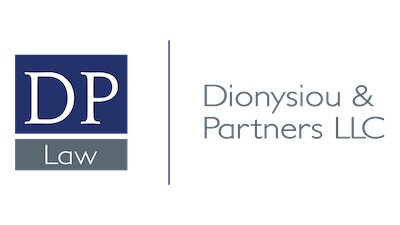Best Antitrust Lawyers in Egkomi
Share your needs with us, get contacted by law firms.
Free. Takes 2 min.
List of the best lawyers in Egkomi, Cyprus
1. About Antitrust Law in Egkomi, Cyprus
Antitrust law in Cyprus governs business conduct that affects competition, including in the suburb of Egkomi near Nicosia. Cyprus applies both national competition rules and EU competition standards due to its EU membership since 2004. The Cyprus Commission for the Protection of Competition (CCPC) enforces these laws within Cyprus, including matters involving Egkomi businesses and traders.
The core focus is to prevent anti competitive agreements, abuse of market power and anti competitive mergers that can harm consumers or other businesses. This means avoiding price fixing, market sharing, or unfair tying practices that could distort competition in local markets around Egkomi. Cyprus follows EU competition principles, which allows for cooperation with the European Commission on cross border matters.
For individuals and companies in Egkomi, antitrust issues can arise in procurement, pricing, distribution agreements and potential merger activity. If a local firm suspects illegal conduct or receives a CCPC inquiry, timely legal guidance from a Cyprus solicitor or attorney experienced in competition law is essential. This guide provides a practical overview and does not replace tailored legal advice.
EU competition rules apply in Cyprus through the Treaty on the Functioning of the European Union and national measures. See the European Commission guidance on competition policy and its implementation in EU member states. ec.europa.eu/competition-policy
The Cyprus Commission for the Protection of Competition enforces national competition law in Cyprus and provides guidance on compliance for businesses operating in Cyprus, including Egkomi. ccpc.org.cy/en
2. Why You May Need a Lawyer
Engaging a qualified antitrust solicitor or attorney in Cyprus can help you understand obligations, assess risk and manage CCPC investigations. The following are concrete, real world scenarios relevant to residents and businesses in Egkomi that commonly require legal assistance.
- Cartel suspicion among local retailers in Nicosia near Egkomi. If two supermarkets are suspected of fixing prices or sharing customers, you need counsel to evaluate claims, preserve evidence and respond to CCPC inquiries.
- A merger or acquisition involving an Egkomi based company that may trigger CCPC notification. A lawyer can assess thresholds, prepare the notification, and coordinate with regulators to limit delays.
- Exclusive dealing or tying arrangements with suppliers in the Egkomi area. A solicitor can determine if the arrangement restricts competition and advise on compliant alternatives or lawful concessions.
- Abuse of dominance by a local online marketplace or platform with substantial market share in Cyprus. Legal counsel can evaluate whether conduct constitutes abuse under EU and national rules and guide corrective steps.
- Internal compliance review for a new pricing or distribution policy affecting Cypriot distributors. An attorney can perform a competition law risk assessment and suggest changes before implementation.
- Response to an informal CCPC inquiry about your business practices in Egkomi. A lawyer can coordinate with regulators, protect confidential information, and prepare a formal reply.
In each case, working with a Cyprus competition law solicitor helps reduce risk, improves responsiveness to regulators and supports strategic business decisions in Egkomi and across Cyprus.
3. Local Laws Overview
Two to three key legal pillars govern antitrust matters in Egkomi, Cyprus, including national competition law and EU competition law applicable to Cyprus. The main instruments are the Cyprus national framework, complemented by EU rules that apply to cross border cases and to Cyprus as an EU member state.
- Cyprus Competition Law No. 108(I)/2008, on the protection of competition, as amended. This law provides the core prohibitions against anti competitive agreements, abuses of dominant position and controls on concentrations within Cyprus. It has been amended to align with EU competition standards and enforcement practices.
- Regulation (EC) No 1/2003 on the implementation of the rules on competition, including how EU competition rules are applied by national authorities in member states like Cyprus. This regulation facilitates cooperation between Cyprus and the European Commission on enforcement matters.
- Treaty on the Functioning of the European Union (TFEU) Articles 101 and 102, which prohibit anti competitive agreements and abuse of dominant position across the EU, and are applicable in Cyprus through national implementation and EU case law.
Recent changes to strengthen enforcement have focused on closer alignment with EU competition practice and enhanced transparency for businesses in Cyprus, including updates to penalties, investigation procedures and merger control thresholds. For authoritative details, consult the European Commission and the Cyprus competition authority resources.
Cyprus enforces EU competition law through national measures and coordinates with the EU framework to apply Articles 101 and 102 of the TFEU. See the EU competition policy overview. ec.europa.eu/competition-policy
The Cyprus Competition Law No. 108(I)/2008 powers and amendments are administered by the Cyprus competition authority, with guidance and case handling published on the official portal. ccpc.org.cy/en
4. Frequently Asked Questions
Below are common questions residents and business owners in Egkomi ask about antitrust law. Answers aim to be clear and practical, without replacing tailored legal advice.
What is antitrust law in Cyprus and what does it cover?
Antitrust law in Cyprus prohibits anti competitive agreements, abuses of dominant positions and certain merger activities. It also governs market practices that may lessen competition in Cyprus, including in Egkomi.
How does EU competition law apply in Egkomi, Cyprus?
EU competition rules apply in Cyprus through the TFEU and national law. Local authorities enforce these rules alongside EU provisions for cross border matters.
When do I need to notify a merger to CCPC?
Notification is required when a proposed merger meets specific turnover or market share thresholds set by Cyprus law and EU rules. A lawyer can assess whether filing is necessary before completing a deal in Egkomi.
Where can I find the official competition law texts in Cyprus?
Official texts are available via the Cyprus Parliament and CCPC resources. Consult the Parliament site for the Law No. 108(I)/2008 and amendments, and the CCPC site for practical guidance.
Why should I worry about price fixing or market division in Egkomi?
Price fixing or market division harms consumers and can expose your business to fines, injunctions and reputational harm. Compliance helps you avoid regulatory action and potential damages claims.
Can a company obtain leniency for cartel cooperation in Cyprus?
In many jurisdictions leniency programs encourage cooperation in cartel investigations. A Cyprus solicitor can explain eligibility, conditions and benefits within Cypriot enforcement rules.
Should I hire a local Cypriot antitrust solicitor for my case?
Yes. A local solicitor with Cyprus competition experience understands CCPC procedures, local market practices and EU law implications for Egkomi businesses.
Do I need to prepare documents for a CCPC inquiry?
Yes. Gather contracts, communications, pricing data, meeting notes and internal memos. An attorney can help preserve privilege while providing regulatory guidance.
Is there a difference between EU competition law and national competition law?
EU law governs cross border or harmonized rules, while national law addresses domestic conduct and enforcement within Cyprus. Practically, many matters involve both regimes.
How long do antitrust investigations typically take in Cyprus?
Investigation duration varies by case complexity. Simple inquiries may wrap within weeks, while complex matters can take several months with findings and remedies.
How much does it cost to hire an antitrust lawyer in Cyprus?
Costs vary by firm, scope of work and timing. Expect hourly rates to differ and initial consultations may be charged or offered at a fixed fee; request a written engagement letter.
What is the difference between fines and damages in antitrust cases?
Fines are regulatory penalties imposed by authorities for violation. Damages are civil claims by harmed parties seeking compensation in court.
5. Additional Resources
Use these official resources to learn more about antitrust law and enforcement in Cyprus and the EU. They provide authoritative guidance and up to date regulatory information.
- European Commission - Competition Policy - Official EU guidance on competition rules, including how they are enforced in member states such as Cyprus. ec.europa.eu/competition-policy
- - Cyprus national authority responsible for enforcing competition law, reviewing mergers, investigations and compliance guidance. ccpc.org.cy/en
- Parliament of Cyprus - Official source for competition law texts and amendments, including Law No. 108(I)/2008 and related regulations. parliament.cy
6. Next Steps
- Define your antitrust issue clearly, including parties involved and the jurisdiction (Egkomi/Cyprus and any cross border aspects). Target date for initial assessment: within 1 week.
- Collect and organize relevant documents such as contracts, pricing sheets, distribution terms, meeting notes and communications. Allocate 1-2 weeks to assemble.
- Identify 3-5 local antitrust lawyers or firms in Nicosia with Cyprus competition law experience, and request a short written overview of their approach and fees.
- Schedule initial consultations to discuss your situation, outcome goals and potential strategies. Plan 30-60 minute sessions; allow 1-2 weeks for scheduling.
- Request engagement proposals outlining scope of work, fees, timelines and deliverables. Compare proposals side by side and check references where possible.
- Choose a lawyer, sign a written engagement letter and share your documents. Expect an initial plan within 1-3 weeks of engagement.
- Begin the case with your chosen counsel, establish a communication cadence and prepare for any CCPC process or court deadlines. Monitor progress with monthly updates.
Lawzana helps you find the best lawyers and law firms in Egkomi through a curated and pre-screened list of qualified legal professionals. Our platform offers rankings and detailed profiles of attorneys and law firms, allowing you to compare based on practice areas, including Antitrust, experience, and client feedback.
Each profile includes a description of the firm's areas of practice, client reviews, team members and partners, year of establishment, spoken languages, office locations, contact information, social media presence, and any published articles or resources. Most firms on our platform speak English and are experienced in both local and international legal matters.
Get a quote from top-rated law firms in Egkomi, Cyprus — quickly, securely, and without unnecessary hassle.
Disclaimer:
The information provided on this page is for general informational purposes only and does not constitute legal advice. While we strive to ensure the accuracy and relevance of the content, legal information may change over time, and interpretations of the law can vary. You should always consult with a qualified legal professional for advice specific to your situation.
We disclaim all liability for actions taken or not taken based on the content of this page. If you believe any information is incorrect or outdated, please contact us, and we will review and update it where appropriate.









